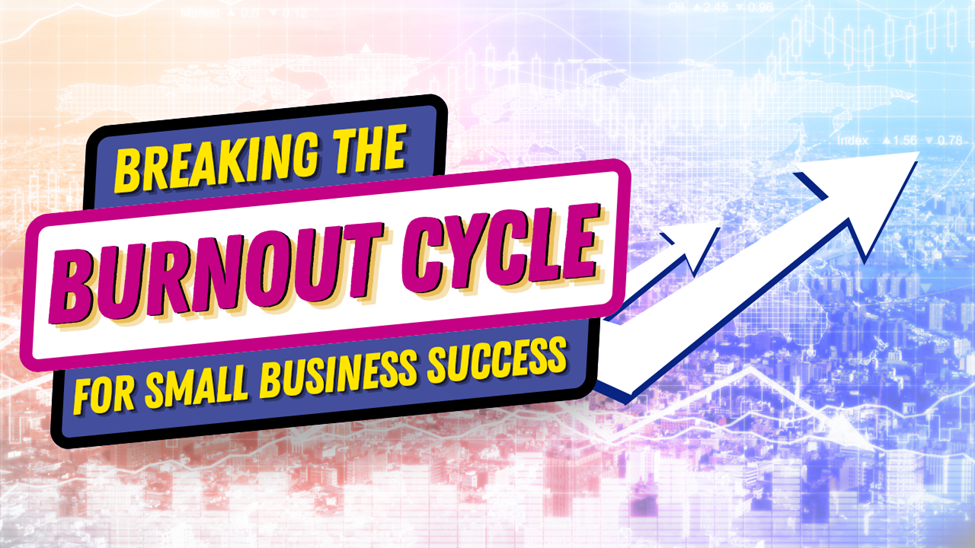Breaking the Burnout Cycle for Small Business Success
- ceo5348
- Aug 6, 2024
- 4 min read
Business ownership is often romanticized as a thrilling combo ride of passion, innovation, and drive where one can wear a hoodie and hang out playing video games all day while money magically flows into your bank account. But anyone in business knows the idea of the effortless hustle or business is about as untrue as being discovered on a street corner in Hollywood and becoming a blockbuster star the very next day.
Does it happen?
Occasionally.
But there are more stories of struggle and strife than instant riches. The reality for many business owners is a less glamorous one that can take a significant toll on mental health. A study by the University of California, Berkeley, found that a staggering 72% of entrepreneurs report experiencing mental health concerns, with 30% reporting lifetime depression. The weight of this statistic underscores the importance of addressing the mental health challenges faced by those at the helm of our businesses. And that begins by looking in the mirror.
The Hidden Cost of the Hustle
The entrepreneurial journey is fraught with unique stressors. Financial instability, long hours, social isolation, the pressure to succeed, and the fear of failure can create a breeding ground for anxiety, burnout, and depression. Many entrepreneurs fall into the trap of prioritizing their business over their well-being. Many believe that personal sacrifices are the price of success. Just one more hour, one more email, one more report is a mantra many of us are familiar with.
Add to that the disheartening stats of failed businesses and you understand why many business owners heady with initial excitement eventually cave to feelings of failure and inadequacy. Sadly, many feel alone when this happens. No one wants to admit their new undertaking is failing.
But those who struggle are not alone. Approximately 23.2% of businesses fail within their first year of operation. Around 48-50% of businesses fail within 5 years. About half of all new businesses do not survive to their 5th anniversary. Approximately 65% of businesses fail within 10 years so about two-thirds of businesses do not make it to 10 years.
Those stats alone can bring on anxiety.
But it’s important to recognize the early signs of burnout and mental health struggles. Ignoring them can have disastrous consequences for you and your business. It can lead to decreased productivity, poor decision-making, high employee turnover, and a toxic company culture. Moreover, mental health struggles can seep into personal relationships, further isolating you from the support you need.
Your local chamber of commerce is in tune with the struggles of business professionals. While your family and friend group may be able to support you emotionally, unless they have had the pressures of running a business, they may not understand what you’re going through.
How the Chamber of Commerce Can Help
Your local chamber of commerce is comprised of business pros too. They recognize the isolation and pressures faced by entrepreneurs. The organization is committed to providing resources and support to help you thrive. After all, a healthy business starts with a healthy leader. You set the tone for your organization.
Here are some chamber resources that can help you avoid burnout and navigate stress:
Networking Events: get to know other entrepreneurs and connect with your peers. Share experiences and build a support network. No one understands your struggles like other business pros.
Educational Trainings: The chamber’s educational events can take the stress out of management as you learn important skills to help with efficiencies and business solutions.
Special Requests: Your chamber can connect you with the type of professionals you need whether to help with expansion, business guidance, coaching, or support. They also know available services and resources specifically tailored to the mental health needs of entrepreneurs and business owners in your community.
Actionable Tips for Mental Well-Being
Being part of a group with common goals and experiences can help you minimize stress. There are other things you can do on your own as well.
Prioritize Self-Care: Even if you feel busy, make time for activities that nourish your mind and body like exercise, meditation, hobbies, or spending time with loved ones. Remember, you can't pour from an empty cup.
Set Boundaries: Establish clear boundaries between your work life and personal life. Set specific work hours, avoid checking emails after a certain time, and take regular breaks. Schedule a departure time from the office/business even if it means logging on later.
Build a Support Network: Surround yourself with people who understand the unique challenges you face. This could be fellow entrepreneurs, mentors, friends, or family. Don't be afraid to ask for help when you need it. Don’t know anyone who fits this bill? Ask your chamber to introduce you or attend a networking event and make some business friends.
Cultivate a Positive Company Culture: Your attitude toward work and stress sets the tone for your entire company. Encourage open communication about mental health, promote work-life balance, and celebrate successes. Remember stress often comes from the top and your employees will see how you’re handling it.
Seek Professional Help: If you're struggling with mental health issues, don't hesitate to seek professional help. A therapist can provide you with the tools and support you need to navigate challenges and build resilience.
Your mental health is an investment in your business’ greatest employee—you. It is not an expense. By prioritizing your emotional well-being, you're safeguarding your own health and setting your business up for long-term success as you are modeling the type of behavior that will make your company culture a more productive and happy one.
.png)




Comments